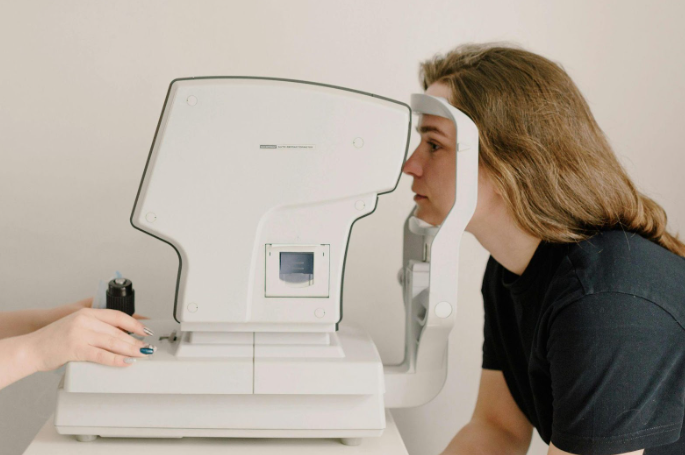What Are The Risks Of Cataract Surgery?
 More than 25 million Americans have cataracts in the U.S. According to “ The Future of Vision
” study by Prevent Blindness, it’s estimated that 38.5 million people in the U.S. will have cataracts by 2032, and 45.6 million will have the eye condition by the year 2050.
More than 25 million Americans have cataracts in the U.S. According to “ The Future of Vision
” study by Prevent Blindness, it’s estimated that 38.5 million people in the U.S. will have cataracts by 2032, and 45.6 million will have the eye condition by the year 2050.
One explanation for the rising number of cataracts is the aging population, since aging is the leading cause of cataracts. In fact, according to the American Academy of Ophthalmology, approximately half of all Americans have cataracts by age 75. However, cataracts can occur at any age, particularly with if one has risk factors such as eye injuries, eye diseases, a family history of cataracts, and certain diseases like diabetes.
Cataracts occur when the lens of the eye gradually becomes cloudy or opaque, which reduces the sharpness of you vision and can give everything in your field of vision a yellowish-brown tint. Think of it along the lines of driving with a dust covered or smudged windshield.
The visual limitations can make it more difficult to read or perform other routine activities, and affect color identification. Cataracts may develop in one or both eyes, but cannot spread from one eye to another.
Cataracts are a progressive and chronic condition, so you cannot reverse their effect on your vision or heal them on your own. Fortunately, cataract surgery is extremely routine and safe. According to the National Eye Institute , cataract removal is one of the most common operations performed in the U.S. Today’s advanced, outpatient cataract surgery procedures lead to improved vision in more than 95% of cases in which cataracts are the only issue.
As with any surgery, there are some risks that may occur in a small number of cases, and you should be aware of these risks and discuss them with your ophthalmologist or eye surgeon if you’re considering cataract surgery. Risks of cataract surgery may include:
- Eye inflammation
- Light sensitivity
- Seeing halos or glare around lights, especially at night
- Seeing flashes of light (Photopsia)
- Swelling of the retina, which may cause blurry vision
- Droopy eyelid (Ptosis)
- Elevated eye pressure
- Intraocular lens dislocation
The severity and duration of these symptoms can vary widely depending on each patient’s unique circumstance. When cataract surgery complications do occur, most are minor and can be successfully treated with medication or with additional laser surgery. In some cases, anti-glare glasses may prove helpful for light sensitivity or for driving at night until symptoms subside.
Depending on your cataract diagnosis, your ophthalmologist can tell you whether your cataracts are likely to progress slowly or rapidly. He or she can also tell you if you’re a good candidate for cataract surgery , and if you might be at a higher risk for any potential complications from the surgery.
If you are experiencing blurry or reduced vision and are wondering if cataracts are to blame, schedule a consultation with an eye doctor at Baptist Eye Surgeons. Baptist Eye Surgeons is an ophthalmological practice in Knoxville, TN, and Morristown, TN, dedicated to providing quality eye care to patients whose needs range from routine comprehensive eye examinations to complex eye surgeries. To meet our doctors and learn more about our specialities, visit our website , or give us a call at 865-579-3920 for more information or to schedule an appointment.





